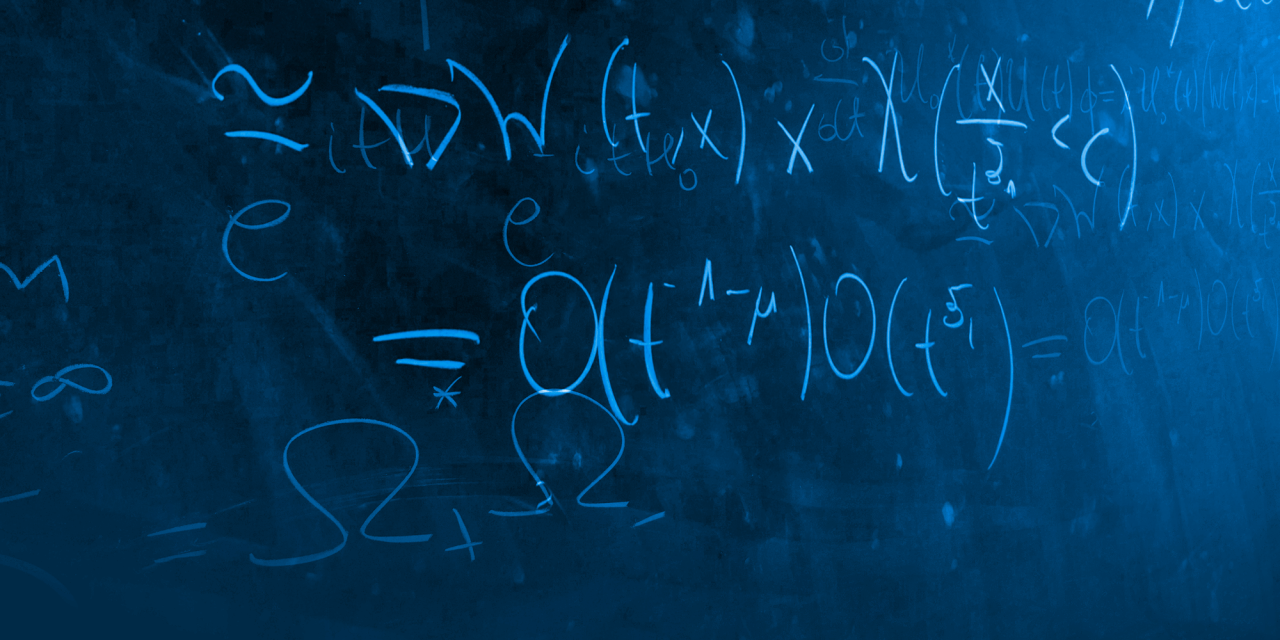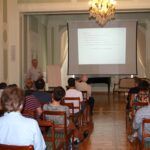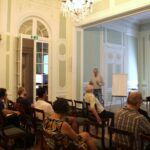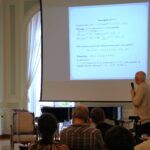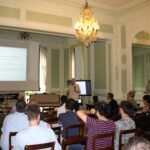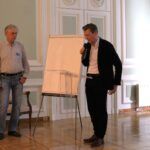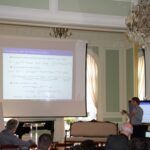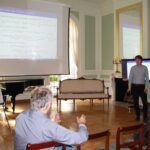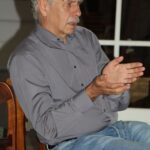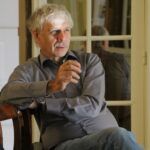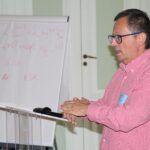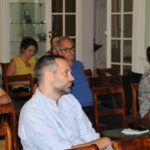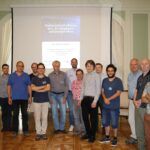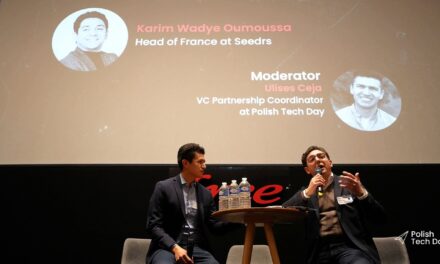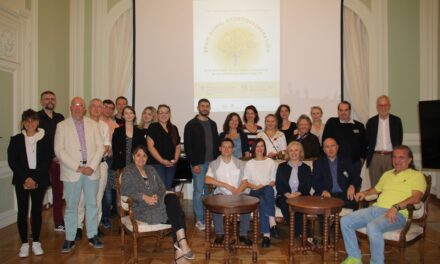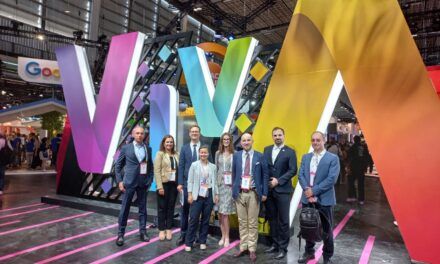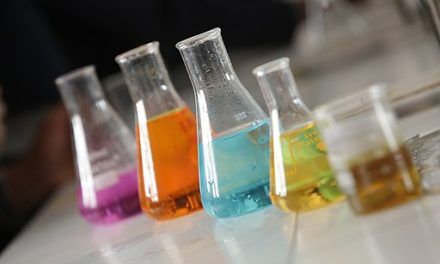The recent progress in mathematical physics has permitted deep insights into a broad array of fundamental problems, in contexts including relativistic theories, condensed matter physics and quantum mechanics. In particular, the combination of spectral or scattering theory with quantization techniques has found a range of applications in settings as diverse as Schrödinger and Dirac operators, interacting models in Quantum Field Theory, quantum fields on curved spacetimes, many-body quantum mechanics and Bose-Einstein condensation.
The main purpose of the meeting, held on 5-6 September at the Polish Academy of Sciences Scientific Center in Paris, was to bring together leading experts in the field of mathematical physics, attempting to discuss its role as a discipline, current challenges and how to increase its direct impact on emerging issues in this field. The international symposium was also an excellent opportunity to debate future goals in a broader perspective, to celebrate long-standing ties and collaborations between French and Polish mathematicians or physicists and their research partners around the world. In particular, the meeting was an opportunity to celebrate the contribution of Jan Derezinski, the meeting’s keynote speaker.
Jan Dereziński is a mathematical physicist and professor at the University of Warsaw who, after finishing his master studies in Warsaw moved to the United States where he did his PhD in 1985 at Virginia Tech under the supervision of George Hagedorn. Since then, he has been working at the Faculty of Physics, University of Warsaw. He was visiting professor at Ecole Polytechnique, University of Copenhagen, Université Paris-Sud and Université Cergy-Pontoise. Professor Dereziński is a renowned expert in the broad area of mathematical quantum mechanics. His research interests range from scattering theory and Quantum Field Theory to Bose-Einstein condensation and special functions. He is the author of over 90 research articles and he has co-authored two monographs.
Relativistic physics was represented in talks by Wojciech Kamiński (University of Warsaw) and Andrzej Sitarz (Jagiellonian University, Cracow). Professor Kamiński’s talk on „The Fefferman-Graham obstruction tensor and conformal Einstein’s equations” explained a new technique for solving Einstein equations with positive cosmological constant by a refinement of the conformal method of Friedrich. Professor Sitarz demonstrated in his talk „Spectral Metric and Einstein Functionals” that the Einstein tensor can be equated with a spectral quantity in the same spirit as the Einstein-Hilbert action is related to the spectral zeta function of the Laplace-Beltrami operator, a cornerstone in non-commutative geometry.
During the meeting the participants listened to three talks devoted to the topic of nonequilibrium quantum statistical mechanics. Two of them concerned the phenomenon of approach to equilibrium. The first one, under the title „Some thoughts on the approach to equilibrium”, was given by Claude-Alain Pillet from the University of Toulon. With his presentation, the speaker introduced the topic of approach to equilibrium – both from a physical and mathematical perspective. Professor Pillet introduced the mathematical framework of algebraic quantum statistical mechanics. This allowed the second speaker, Vojkan Jakic from McGill University in Montréal, to focus in his talk „Some remarks on adiabatic time evolution and quasi-static processes in translation-invariant quantum systems” on more specific systems and present more recent results. The last talk in this area was given by Wojciech De Roeck from the Catholic University of Leuven. In his presentation „Classification of G-charge Thouless pump”, Professor De Roeck used the algebraic formulation of quantum statistical mechanics in order to examine the process of charge transport and charge quantization in one-dimensional spin chains.
Ultimately, beside its direct scientific objectives, the meeting helped to emphasize the Franco-Polish partnership and to promote Polish research, achieve more attractivity for Polish scientists and stimulate further successful international collaborations.
Date of the conference: 1-2 June 2022
Place of the conference: Polish Academy of Sciences Scientific Center in Paris (74, rue Lauriston)
Organising Committee:
Prof. Michał Wrochna (Cergy Paris Université)
Dr Marcin Napiórkowski (University of Warsaw)
Diana Kogaczewska (Polish Academy of Sciences Scientific Center in Paris)



